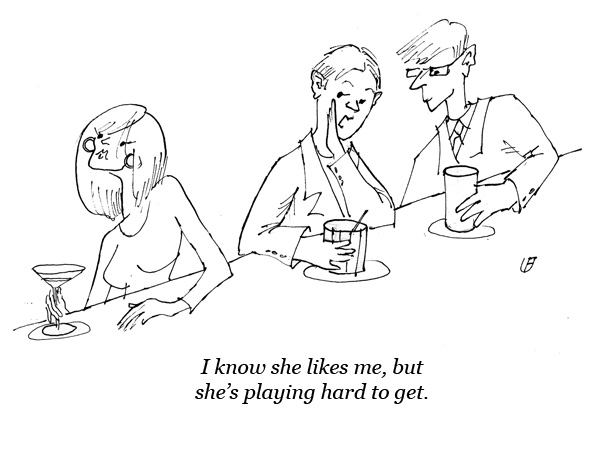
Home > Building Background Knowledge
The engine that drives self-justification, the energy that produces the need to justify our actions and decisions—especially the wrong ones—is an unpleasant feeling that [Leon] Festinger called "cognitive dissonance." Cognitive dissonance is a state of tension that occurs whenever a person holds two cognitions (ideas, attitudes, beliefs, opinions) that are psychologically inconsistent, such as "Smoking is a dumb thing to do because it could kill me" and "I smoke two packs a day." Dissonance produces mental discomfort, ranging from minor pangs to deep anguish; people don't rest easy until they find a way to reduce it. In this example, the most direct way for a smoker to reduce dissonance is by quitting. But if she has tried to quit and failed, now she must reduce dissonance by convincing herself that smoking isn't really so harmful, or that smoking is worth the risk because it helps her relax or prevents her from gaining weight (and after all, obesity is a health risk, too), and so on. Most smokers manage to reduce dissonance in many such ingenious, if self-deluding, ways.*
_________________
* Carol Tavris and Elliot Aronson Mistakes Were Made (But Not By Me), p.13
The psychologist Leon Festinger coined the term "cognitive dissonance" to describe an experiment with a doomsday cult he and two colleagues had infiltrated in order to study what people do when someone or something they believe in proves to be false. According to the newspaper account that aroused the researchers' interest, a woman the researchers called Mrs. Keech claimed to be in contact with aliens from another planet. From her alien contacts, Mrs. Keech had learned that the world was set for destruction on December 21, 1954. Fortunately for Mrs. Keech and her followers, though, the aliens had also said that she and her disciples would be saved. At world's end, they would be scooped up and flown away to safety in a flying saucer. Accepting her prophecy of Earth's destruction as true, Mrs. Keech's believers made preparations for the world to end. Some emptied their bank accounts, sold their homes, and said good bye to their friends. Not surprisingly, December 21 came and went without Earth being destroyed. In response, Mrs. Keech cheerfully announced that she had gotten another alien message: The world had been saved because her followers had believed in her. Hearing her excuse, those who had not given up all their worldly goods pronounced Mrs. Keech a fraud. But those who had lost the most by believing in her prophecy became even more fiercely devoted to Mrs. Keech and made intense efforts to convert others as well. In trying to explain the behavior of people like Mrs. Keech's followers, Festinger came up with the term "cognitive dissonance," which describes the anxiety people feel when what they believe or think is challenged by contradictory information or experiences.

© Ulrich Flemming
Last change made to this page: April 24, 2011